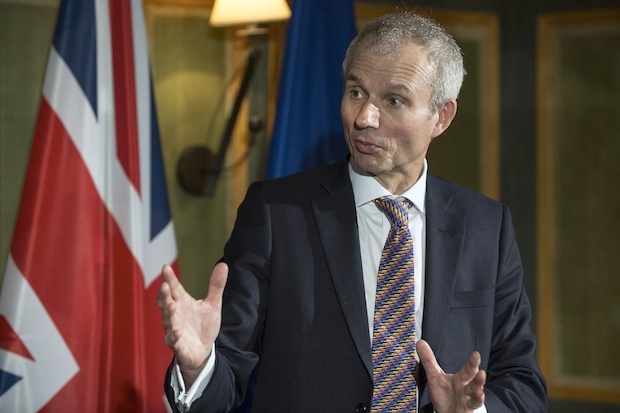Remember that shopping list of EU reforms that Conservative party members sent ministers in the summer? Well, they’ve finally got a reply. I’ve got hold of a letter to members from Europe Minister David Lidington, which answers some of their concerns and gives us an interesting glimpse into where Conservative party thinking currently stands on European reform.
The first point worth making is that while Lidington’s letter is very upbeat about the prospects of reform in Europe, the minister focuses on the opportunities for Europe-wide reform, rather than the likelihood of a new relationship with the EU for the UK. Of course, these changes can take place as part of the same renegotiation, but it is interesting that the minister feels able to emphasise the potential for other European countries accepting the former without giving much evidence for their willingness for the latter. He writes:
‘I’m sure [members] will be pleased to know that in their Subsidiarity Review, the Dutch Government proposed a new principle: ‘at European level only when necessary, at national level whenever possible’. Since the Prime Minister’s speech the debate across Europe has begun to shift: more and more national leaders are talking about powers coming back from Brussels. That is not to say that great challenges don’t remain: they do.’
Lidington also argues in the letter that ‘we have been leading the charge’ on making the EU more competitive, citing three examples of ‘concrete progress’: the single EU patent regime, reform of the EU’s accounting directive and capping roaming charges.
When it comes to a specific renegotiation of Britain’s relationship with Europe, rather than EU-wide reform, Lidington tells members that ministers want a new structure of membership that accommodates those keen to pursue ‘ever closer union’ as well as those, like Britain, who do not. He writes:
‘Clearly a one size fits all approach – which in practice ended with Maastricht in 1992 – is impossible in the EU but there does have to be a core everyone participates in, which we see as the Single Market. We want to see is a structure that can accommodate the diversity of its members, some of whom are contemplating much closer economic and political integration and many others, including Britain, who would never embrace that goal.
‘As William Hague announced at Party Conference, we want an end to the obligation on all EU members to subscribe to an “ever closer union among the peoples of Europe” and instead see the Dutch Government’s proposed principle of the “European level only when necessary, at national level whenever possible’ put in place.’
But there are two things in this reply – or rather that are not in this reply – that may leave members feeling a little flat. The first is that Lidington simply notes ‘carefully’ the views on immigration, agriculture, and employment and welfare regulation, and says ‘we will bear this in mind as we develop our European policy further’, rather than suggesting how much scope there is for reform either across Europe or for the countries like Britain who want a new relationship in a new structure of the EU. Those issues were top of the concerns in the original shopping list. He does refer to announcements already made by both Theresa May and Chris Grayling on human rights reform.
And the second is that he tells members that the solution to their complaints about a ‘lack of objective information about the EU and our relationship with it’ is the Foreign Office’s Balance of Competences review, which most eurosceptics had looked forward to as a genuinely rigorous examination of Britain’s relationship with Europe but which so far has produced an assessment of the current as being pretty hunky dory.
Lidington isn’t going to reveal the shopping list for renegotiation to members, even if they’ve given him their list. But as I reported recently, Tory MPs do want to hear more from the Prime Minister about the details of that renegotiation so they have something to tempt voters when they’re out campaigning in the European elections. So it’s worth asking who it is that is working on the renegotiation list, even though it will remain private for as long as possible. The Number 10 policy board doesn’t tend to discuss Europe as it is a ‘settled’ issue, apparently, and the Foreign Office has an interesting official view on the problems with the EU as it currently stands. John Major suggested a while back that the PM needed to start preparing for the renegotiation, and as I’ve reported before, he has his envoys working across Europe in the form of the Fresh Start Group to prepare the soil. But who is helping him draw up that list for the renegotiation? Perhaps the PM wants to keep that private, too, just in case the group isn’t deemed eurosceptic enough by his party.







Comments